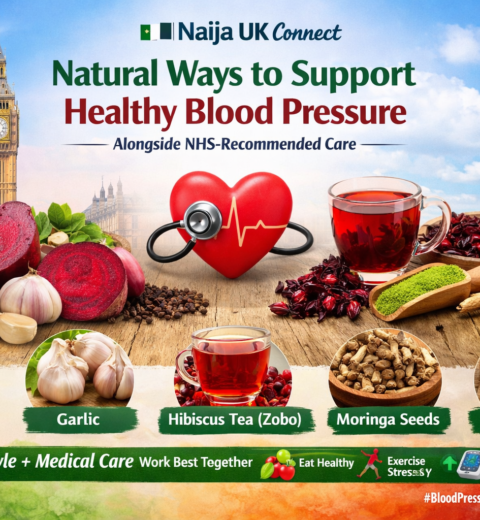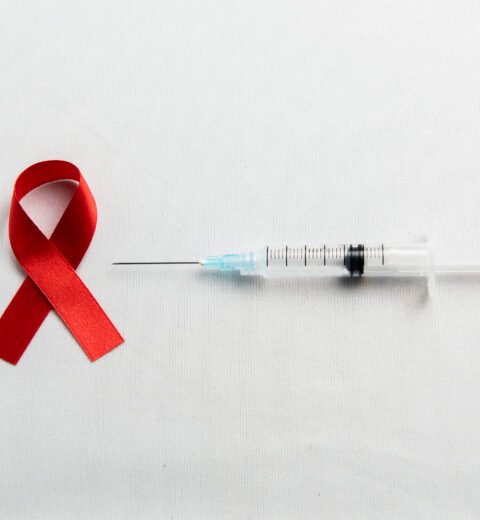Promoting Sun Safety and Awareness of Skin Cancer Risks
Sun Awareness Week 2025, led by the British Association of Dermatologists (BAD), started last Monday, 12th May, and runs until 18th May. This important campaign highlights the dangers of sun exposure and promotes sun safety for everyone living in the UK — including Nigerians and other Black communities who may underestimate their risk.
Why Sun Safety Matters for Nigerians in the UK
Many believe that darker skin offers complete protection from the sun’s harmful effects. While melanin does provide some natural protection, it does not make you immune to skin damage or skin cancer. In fact, skin cancers in people with darker skin tones are often diagnosed later and can be more dangerous.
As the warmer weather arrives, it’s vital to stay informed about the risks and take proper precautions to protect yourself and your loved ones.
Understanding UV and Its Effects
UV radiation is present year-round in the UK, even on cloudy or cooler days. The UV index measures the strength of ultraviolet radiation, which can cause:
- Sunburn
- Skin cancer
- Eye damage
Protecting yourself from UV exposure is crucial, no matter your skin tone.
Essential Sun Safety Tips from the NHS and Met Office
Protect Your Skin
- Use a broad-spectrum sunscreen with at least SPF 30.
- Reapply sunscreen every two hours, especially after swimming or sweating.
- Wear protective clothing, like long sleeves and wide-brimmed hats.
- Seek shade during the strongest sun hours (11 am – 3 pm).
Protect Your Eyes
- Wear sunglasses that block 99–100% of UVA and UVB rays.
- Wraparound styles provide the best protection.
Avoid Sunburn
Sunburn damages the skin and increases your risk of skin cancer. Even if you don’t burn easily, avoid overexposure.
Balance Vitamin D Needs
While sunlight helps the body produce vitamin D, a few minutes outside each day is usually enough. Avoid long periods in direct sun to reduce risks.
Remember Winter Sun
UV rays can still be strong in winter, especially at higher altitudes or when reflected by snow.
Check Your Skin Regularly
Perform a full-body skin check every 3–6 months to spot any unusual changes early. Use a mirror or ask someone to help check hard-to-see places like your back and scalp.
Watch for:
- New or changing moles or spots
- Sores that don’t heal
- Raised, firm, or itchy bumps
- Dark lines under nails
If you notice any changes, visit your GP or dermatologist promptly.
Recognizing Signs of Skin Cancer
Melanoma is the most serious form of skin cancer. Use the ABCDE rule to check moles:
- Asymmetry: One half doesn’t match the other
- Border: Edges are ragged or blurred
- Color: Uneven shades of brown, black, red, or white
- Diameter: Larger than a pencil eraser (6mm)
- Evolution: Changes in size, shape, or color
Basal cell carcinoma (BCC) and squamous cell carcinoma (SCC) are other common skin cancers, often appearing as red patches, sores, or growths on sun-exposed areas.
Staying Safe in Hot Weather
The UK’s hotter days can strain your body. To stay safe:
- Keep your home cool by closing curtains during peak sun hours.
- Stay hydrated by drinking plenty of water, avoiding alcohol.
- Take cool showers or baths.
- Avoid strenuous activities during the hottest part of the day.
- Check on elderly or vulnerable family and neighbours.
Sun Awareness Week Reminder
Sun Awareness Week 2025 is a timely reminder to stay sun smart and protect your health. Follow the advice from health experts, keep an eye on the UV index daily, and take steps to enjoy the sun safely.
For the latest weather and UV forecasts:
Visit the Met Office website or download their mobile app.
Stay safe and enjoy the sunshine!
Join Our WhatsApp Channel
Stay updated on the latest UK news, including education, health, job openings, and more for those living in the UK!
Join here: Naija UK Channel
Also, follow us on our social media channels for the latest updates and discussions:
- Twitter: @NaijaUKConnect
- Facebook: Naija UK Connect
- Instagram: @naijaukconnect




